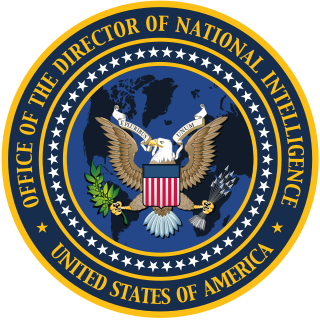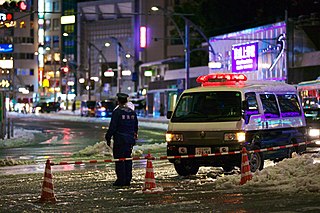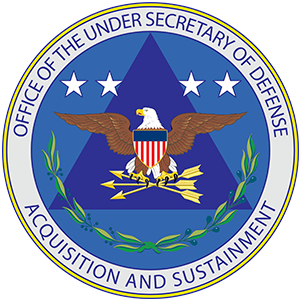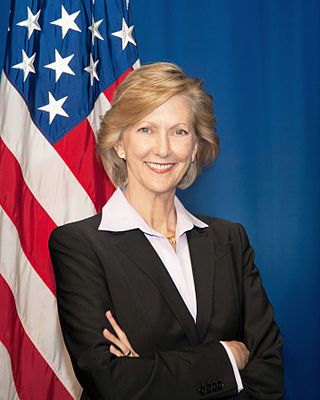
Natalia Gambaro (born September 1, 1977) is an Argentine lawyer and politician who served as executive director of the Argentine National Agency for Controlled Materials from May 17, 2016 to July 4, 2018. [1] [2]

Natalia Gambaro (born September 1, 1977) is an Argentine lawyer and politician who served as executive director of the Argentine National Agency for Controlled Materials from May 17, 2016 to July 4, 2018. [1] [2]
She was an advisor to the National Deputy Francisco de Narváez in the Foreign Relations and Constitutional Affairs committees between 2005 and 2007. [3] In December 2009, she became a National Deputy for the province of Buenos Aires. [4]
She was appointed as the executive director of the Argentine National Agency for Controlled Materials from May 17, 2016 to July 4, 2018. [5]

The United States National Security Council (NSC) is the principal forum used by the president of the United States for consideration of national security, military, and foreign policy matters. Based in the White House, it is part of the Executive Office of the President of the United States, and composed of senior national security advisors and Cabinet officials.

The Bureau of Alcohol, Tobacco, Firearms and Explosives (BATFE), commonly referred to as the ATF, is a domestic law enforcement agency within the United States Department of Justice. Its responsibilities include the investigation and prevention of federal offenses involving the unlawful use, manufacture, and possession of firearms and explosives; acts of arson and bombings; and illegal trafficking and tax evasion of alcohol and tobacco products. The ATF also regulates via licensing the sale, possession, and transportation of firearms, ammunition, and explosives in interstate commerce. Many of the ATF's activities are carried out in conjunction with task forces made up of state and local law enforcement officers, such as Project Safe Neighborhoods. The ATF operates a unique fire research laboratory in Beltsville, Maryland, where full-scale mock-ups of criminal arson can be reconstructed. The ATF had 5,285 employees and an annual budget of almost $1.5 billion in 2021. The ATF has received criticism over its handling of the Ruby Ridge siege, the Waco siege and other incidents.

The director of national intelligence (DNI) is a senior, cabinet-level United States government official, required by the Intelligence Reform and Terrorism Prevention Act of 2004 to serve as executive head of the United States Intelligence Community (IC) and to direct and oversee the National Intelligence Program (NIP). All IC agencies report directly to the DNI. The DNI also serves, upon invitation, as an advisor to the president of the United States, the National Security Council and the Homeland Security Council on all intelligence matters. The DNI, supported by the Office of the Director of National Intelligence (ODNI), produces the President's Daily Brief (PDB), a top-secret document including intelligence from all IC agencies, handed each morning to the president of the United States.

The United States Intelligence Community (IC) is a group of separate United States government intelligence agencies and subordinate organizations that work both separately and collectively to conduct intelligence activities which support the foreign policy and national security interests of the United States. Member organizations of the IC include intelligence agencies, military intelligence, and civilian intelligence and analysis offices within federal executive departments.

The Bureau of Intelligence and Research (INR) is an intelligence agency in the United States Department of State. Its central mission is to provide all-source intelligence and analysis in support of U.S. diplomacy and foreign policy. INR is the oldest civilian element of the U.S. Intelligence Community and among the smallest, with roughly 300 personnel. Though lacking the resources and technology of other U.S. intelligence agencies, it is "one of the most highly regarded" for the quality of its work.

The United Nations Office on Drugs and Crime is a United Nations office that was established in 1997 as the Office for Drug Control and Crime Prevention by combining the United Nations International Drug Control Program (UNDCP) and the Crime Prevention and Criminal Justice Division in the United Nations Office at Vienna, adopting the current name in 2002.

Rosatom, also known as Rosatom State Nuclear Energy Corporation, the State Atomic Energy Corporation Rosatom, or Rosatom State Corporation, is a Russian state corporation headquartered in Moscow that specializes in nuclear energy, nuclear non-energy goods and high-tech products. Established in 2007, the nonprofit organization comprises more than 350 enterprises, including scientific research organizations, a nuclear weapons complex, and the world's only nuclear icebreaker fleet.

Law enforcement in Japan is provided mainly by prefectural police under the oversight of the National Police Agency. The National Police Agency is administered by the National Public Safety Commission, ensuring that Japan's police are an apolitical body and free of direct central government executive control. They are checked by an independent judiciary and monitored by a free and active press.
The United States government classification system is established under Executive Order 13526, the latest in a long series of executive orders on the topic beginning in 1951. Issued by President Barack Obama in 2009, Executive Order 13526 replaced earlier executive orders on the topic and modified the regulations codified to 32 C.F.R. 2001. It lays out the system of classification, declassification, and handling of national security information generated by the U.S. government and its employees and contractors, as well as information received from other governments.

Gun-related violence is violence committed with the use of a firearm. Gun-related violence may or may not be considered criminal. Criminal violence includes homicide, assault with a deadly weapon, and suicide, or attempted suicide, depending on jurisdiction. Non-criminal violence includes accidental or unintentional injury and death. Also generally included in gun violence statistics are military or para-military activities.

The Under Secretary of Defense for Acquisition and Sustainment, or USD(A&S), is the Principal Staff Assistant (PSA) and advisor to the Secretary of Defense for all matters relating to acquisition and sustainment in the Department of Defense. This includes the DoD Acquisition System; system design and development; production; logistics and distribution; installation maintenance, management, and resilience; military construction; procurement of goods and services; material readiness; maintenance; environment and energy resilience ; utilities; business management modernization; International Armaments Cooperation, Cooperative Acquisition and International Agreements, Promoting exportability of military components to allies and partners; nuclear, chemical and biological defense programs; and nuclear command, control, and communications.

Nancy Eileen McEldowney is an American academic and diplomat who served as the national security advisor to Vice President Kamala Harris from January 20, 2021 to March 21, 2022. She was previously a career Foreign Service officer, served as United States ambassador to Bulgaria (2008–2009), and was director of the Foreign Service Institute from February 2013 until June 2017.

Irina Georgieva Bokova is a Bulgarian politician and the former Director-General of UNESCO (2009–2017). During her political and diplomatic career in Bulgaria, she served, among others, two terms as a member of the National parliament, and deputy minister of foreign affairs and minister of foreign affairs ad interim under Prime Minister Zhan Videnov. She also served as Bulgaria's ambassador to France and to Monaco, and was Bulgaria's Permanent Delegate to UNESCO. Bokova was also the personal representative of Bulgaria's president to the Organisation internationale de la Francophonie (2005–2009).

Natalia Gherman is a Moldovan politician who has been serving as executive director of the United Nations' Counter-Terrorism Executive Directorate since 2023.

National Anti-Corruption Bureau of Ukraine or NABU is a Ukrainian law enforcement anti-corruption agency which investigates corruption in Ukraine and prepares cases for prosecution. It has investigatory powers but cannot indict suspects. Only agency findings passed to the Specialized Anti-Corruption Prosecutor's Office become a part of criminal case.

Slavery is a system which requires workers to work against their will for little to no compensation. In modern-day terms, this practice is more widely referred to as human trafficking. Human trafficking is defined by the United Nations Office on Drugs and Crime as “the recruitment, transportation, transfer, harboring or receipt of persons, by means of the threat or use of force or other forms of coercion, of abduction, of fraud, of deception, of the abuse of power or of a position of vulnerability or of the giving or receiving of payments or benefits to achieve the consent of a person having control over another person, for the purpose of exploitation”. The practices of slavery and human trafficking are still prevalent in modern America with estimated 17,500 foreign nationals and 400,000 Americans being trafficked into and within the United States every year with 80% of those being women and children. Human trafficking in the United States can be divided into the two major categories of labor and sex trafficking, with sex trafficking accounting for a majority of cases.

The Cybersecurity and Infrastructure Security Agency (CISA) is a component of the United States Department of Homeland Security (DHS) responsible for cybersecurity and infrastructure protection across all levels of government, coordinating cybersecurity programs with U.S. states, and improving the government's cybersecurity protections against private and nation-state hackers.

The Food Information and Control Agency is the Spanish Department of Agriculture, Fisheries and Food autonomous agency responsible for managing the information and control systems of the olericulture, dairy and other markets that the Ministry determines; the control of compliance with the Food Chain Improvement Act of 2013 and the official control of Protected Designations of Origin and Geographical Indications whose territorial scope extends to more than one autonomous community, before the commercialization.
The National Agency for Controlled Materials, formerly the National Weapons Registry of the Argentine Republic is the body in charge of registering, supervising and controlling firearms, other regulated materials and their users within the Argentine national territory with the sole exclusion of weapons belonging to the Armed Forces. They are also charged with proposing and implementing policies to promote better compliance with the Ministry of Justice and Human Rights.

Natalia Soledad Villa is an Argentine politician who served as a National Deputy elected in Buenos Aires Province from 2017 to 2021. She is a member of Republican Proposal (PRO). Since 2021, she has been a member of the Vicente López Partido City Council, a post she held from 2013 to 2017 as well.